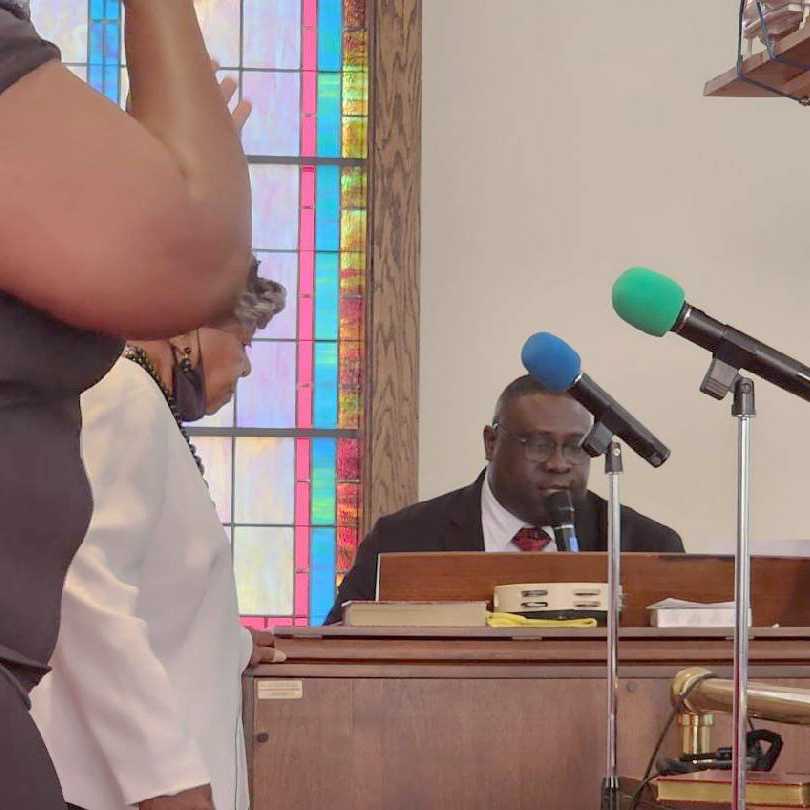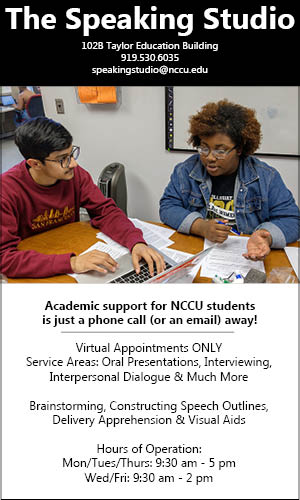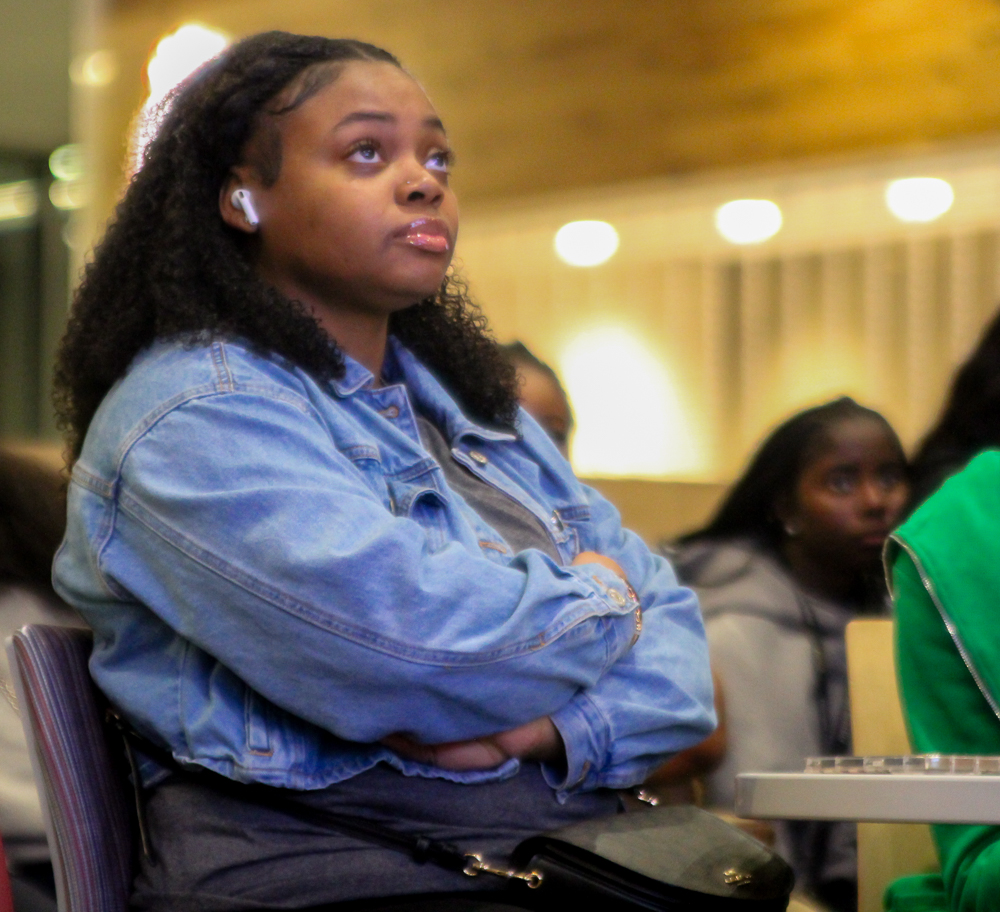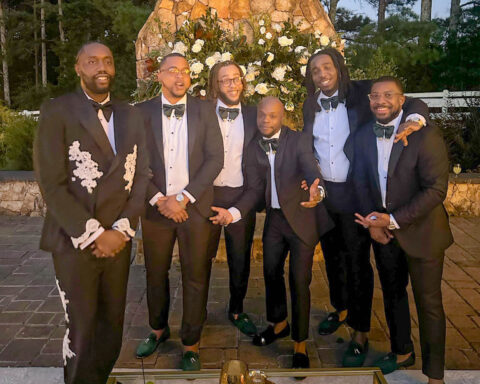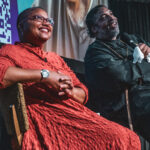Ask an N.C. Central University Interdisciplinary Studies senior what gets him up in the morning and his answer is simple: music. A typical Sunday for Johnnie Draft III – or JD as his friends call him – is more than just brunch, it’s a day for him to serve his community.
JD is a music director for not one, not two, but three churches- two in Winston-Salem and one located in Greensboro. When Sunday arrives, he’s always on the move. They begin at 4:00 a.m. with a drive from Ruffin, North Carolina to Greater Galilee Baptist Church, in Winston-Salem for his first service.
Then he travels to Mt. Carmel Baptist Church for his second service. And lastly, he takes a final drive to Believers Ministries, in Greensboro for his third service. JD’s day as a musical director ends at 9:00 pm.
“About four years, I’ve kind of prepared myself mentally.. waking up around about four in the morning… leave the house no later than 7 to 7:30,” he said.
This has been JD’s routine since he became musical director: Thriving as a busy student on weekdays and exhibiting musical talents through the weekend. JD said his work as a music director at three churches motivated him to efficiently balance his coursework and music.
“Well, you put a lot of time and effort into it and you dedicate yourself to it and you know people are not as dedicated as you are … you know you look at it differently,” JD said.
He also discussed how becoming a well-known music director influenced him as a teacher and a student. Aside from his own individual preparation for Sundays, he makes sure his choirs have what they need.
“I give all the music out on Tuesdays to the choirs,” JD said. “Every Tuesday after Sundays… so that they can start their studying.”
As a music director, JD’s responsibilities are wide ranging. He collaborates with choir members, manages rehearsals, organizes hymns, arranges selections and manages outings to outside performances.
JD also addressed how his personality can be infectious, resulting in new connections.
“It has had some ups and downs, ins and outs.. you get better and better as the years go on and you get more people loving you and you get more people who want to be in the choir because of you.. they show their love.”
JD’s passion for music began at the age of 7 when he was doing sound replications on a keyboard in Philadelphia. Since that moment, he added, he’s learned a lot by transitioning from a Philadelphia to a North Carolina musician.
“You’ve got to be versatile… you can’t just play one style, you’ve got to know ALL the styles.”
Listening to music redundantly over and over again, JD proclaimed, is how he became accustomed to the different styles.
After years of caring for his ailing mother and grandparents, JD said his purpose was to pursue an everlasting career in music.
First, JD attended Guilford Technical Community College where he earned degrees in music and education.
From there he became the Minister of Music and IT Coordinator at Elijah Grove Baptist Church in Roxboro, N.C.
JD said that taking piano lessons at NCCU allowed him to “break bad habits” and start on “creating new habits.”
He acknowledged that his chord work, fingering techniques and his dedication to practice enhanced his overall performances.
JD has a long history of directing special performances and performing himself.
In 2016, he performed in the “Showcase of Song” with his choir, The Admiration & Praise Community Choir, in Winston-Salem. He sang and provided a rendition of the roots of gospel and spiritual music.
On Sept. 28, JD performed and curated a Homecoming Musical Fellowship, “Bridging The Gap,” that was inspired by the progression of old and new gospel forms. But his proudest accomplishment so far has been performing at N.C. A&T University’s Homecoming Gospel show.
JD mentioned that you can add and learn different skills from music such as math, time, punctuations and listening.
“Oh yeah, you can always apply the administrative skills, the dedication and time to everything,” JD said. “You have to know how to adapt to that style of music.”
He said one NCCU course, taught by percussionist Thomas Taylor, was particularly important to understanding the effects and uses of lyricism.
“Words,” said JD, “are encouraging, not necessarily the beat, tempo or rhythm that is important.”
He plans to eventually further continue his education by attempting to receive his Master’s degree in History or Business Administration, possibly go to divinity school and release his own CD.

